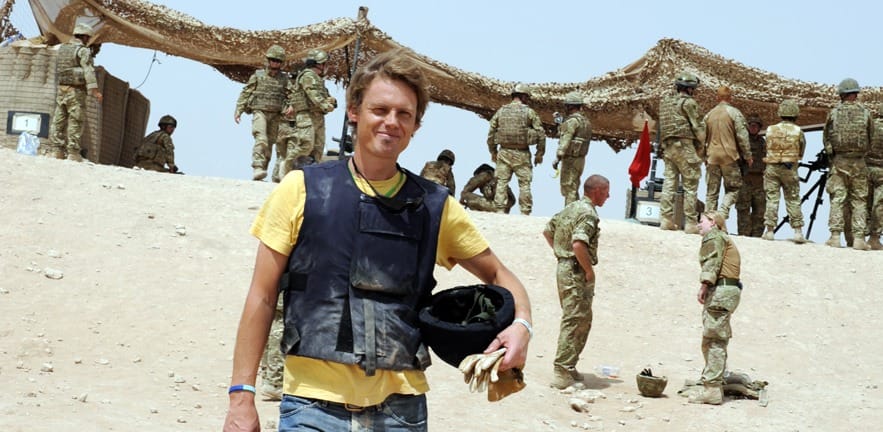New book by Professor Mark de Rond of Cambridge Judge Business School, Doctors at War, explores the courage, compassion and comic tragedy of modern war – with a few echoes from “M*A*S*H”.

The tragi-comic role of military surgeons in Afghanistan is the subject of a new book, Doctors at War, by Professor Mark de Rond of Cambridge Judge Business School, published by Cornell University Press today (7 March) in the US and next month in the UK.
The book – which has some echoes of the classic book and TV series “M*A*S*H” – stems from Mark’s research over 16 months, including six weeks of fieldwork in 2011 at Camp Bastion, Afghanistan. Mark is Professor of Organisational Ethnography at Cambridge Judge, and his research often focuses on the dynamics of high-performing teams.
The book was published despite strong resistance from the UK Ministry of Defence. As Cornell University Press says in a blog post:
“We weren’t supposed to read Mark de Rond’s new book Doctors at War. A high-ranking medical officer in the British Ministry of Defense insisted Mark de Rond write this book, and do so without fear of censorship. However, upon its completion, the Ministry told Mark de Rond it would oppose the book due to his exceptionally candid and true-to-life account of a trauma surgical team at work in the ‘world’s bloodiest’ field hospital, Camp Bastion, in Afghanistan. Despite such pressure, Mark de Rond has chosen to publish the book.”
The new book, subtitled “Life and Death in a Field Hospital”, includes a forward from Chris Hedges, a former Pulitzer Prize-winning journalist for the New York Times who covered wars in El Salvador, Bosnia and Iraq. He says of Mark’s book:
By focusing on the physical effects of war on human bodies, it forces us to confront war’s ugly reality… The physicians and nurses who care for the human detritus of war carry their own burdens. They have seen, and held in their hands, the broken bodies that are sacrificed on the altar of war.
Mark chronicles the courage of doctors, nurses and others at Camp Bastion, but also the horrors of injury and death stemming from the war in Afghanistan. Many of the victims are civilian children, whose injuries are often amputations caused by improvised explosive devices (IUDs).
As Cornell University Press says, “Doctors at War tells of the highs and lows of surgical life in hard-hitting detail, bringing to life a morally ambiguous world in which good people face impossible choices, and in which routines designed to normalise experience have the unintended effect of highlighting war’s absurdity. Mark lifts the cover on a world rarely ever seen, let alone written about, and helps rebalance popular and overly heroic, adrenaline packed tales of what it is like to go to war. Here the crude and visceral coexist with the tender and affectionate, as do pleasure and guilt, kindness and cruelty, courage and cowardice, and the profound and pointless. In sum, it provides a unique insight into the lived experience of war from the point of view of view of good people forced to make difficult choices in an absurd environment.”

